Indian medicines for sinusitis. Cure for sinusitis: a review of the best effective treatments
Common cause The development of sinusitis is a complicated course of a runny nose in the absence of proper treatment. An important aspect in the treatment of this pathology involves the correct prescription and use of medications of various categories.
Modern pharmaceutical industry provides a large assortment effective means to eliminate all unpleasant symptoms of the disease.
In order to cure the disease and choose a remedy for sinusitis in a pharmacy, you should undergo examination by a qualified specialist who will select the appropriate and effective scheme treatment.
Therapy for sinusitis involves performing the following tasks:
- elimination pathogenic microorganisms, living in the nasal cavity;
- withdrawal pain syndrome;
- reduction of high temperature and other signs of intoxication of the body;
- providing conditions that facilitate breathing and elimination purulent mucus from the maxillary sinuses;
- suppression of acute inflammatory process.
Important! If an illness occurs, you do not need to independently compile a list of tablets for sinusitis, since such treatment has the most unpredictable consequences! Only a qualified doctor can prescribe all the necessary medications and physiological procedures!
Description and characteristics of drugs for the treatment of sinusitis
Before treating sinusitis with medications, you should carefully study the main categories of drugs used for therapy. of this disease. Depending on the degree of development of the pathology, there are the following types medications:
Antibacterial drugs
They are effective against bacterial development of the disease. Positive results brings the use of ampicillin and cephalosporin antibiotics. If you have allergies, you can use medications from the azalide group. The dosage and method of use of medications is prescribed by the attending physician.
Amoxiclav
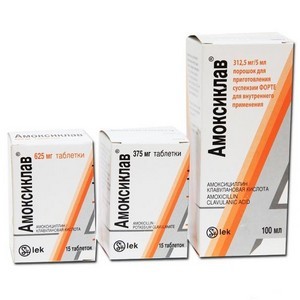 This effective antibiotic amoxicillin series, used to treat sinusitis.
This effective antibiotic amoxicillin series, used to treat sinusitis.
The drug is presented in the form of tablets, special dragees and a solution for preparing a suspension.
Active substance Amoxicillin in combination with clavulonic acid suppresses the development of pathogens in the nasal cavity.
When using the medicine you should also consider a number of contraindications: infectious mononucleosis, lymphocytic leukemia, increased sensitivity in relation to active substances, liver and kidney dysfunction. Price 350–400 rubles.
Ceftriaxone
Broad-spectrum cephalosporin antibiotic. The drug is effective in the treatment of severe pathologies in the nasal cavity and is available in the form of a solution for the preparation of injections and tablets.
Active substance provides the main effect of the drug and effectively suppresses the activity of bacteria various types. The medication should not be taken during pregnancy, breastfeeding, ulcerative manifestations, liver or kidney dysfunction.
Price 400–450 rubles.
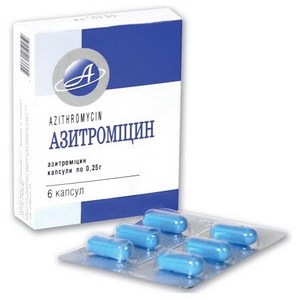 Azithromycin
Azithromycin
An inexpensive antibiotic from the azalide group with a wide range of applications.
The drug is effective in the treatment of sinusitis and is produced in the form of tablets and a solution for the preparation of an oral suspension. The active component of the composition provides bactericidal effect
Important! medicines. initial stage the development of sinusitis involves the use of an antibacterial agent in the form of a spray. These include the drug Bioparox, which, when correct use
produces the desired effect!
Vasoconstrictor drugs The main purpose of the medications is to relieve swelling of the mucous membrane and maximize hydration of the nose. Depending on the functionality, medications are isolated to facilitate breathing based on vegetable oils
, with the addition of corticosteroids, combination type agents.
 Naphthyzin
Naphthyzin
Inexpensive vasoconstrictor drug.
The medicine is presented in the form of drops and is intended for instillation into the nose when characteristic pathologies occur.
The active substance Naphazoline provides the basic properties of the medication. a number of contraindications: The drug also has, arterial hypertension allergic manifestations , atherosclerosis, tachycardia, diabetes , severe ophthalmological diseases, children under 1 year. average cost
30–50 rubles.
Sanorin An effective vasoconstrictor with Naphazoline nitrate content
as an active substance. Medicine release form: nasal drops in a bottle. Area of application: treatment and prevention of respiratory diseases.
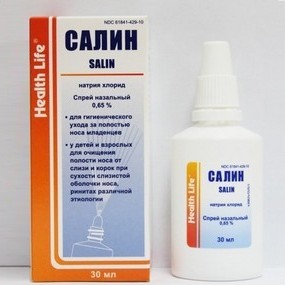 Salin Nasal drops with a moisturizing effect. The active substance isotonic sodium chloride solution has a beneficial effect on improving general condition
Salin Nasal drops with a moisturizing effect. The active substance isotonic sodium chloride solution has a beneficial effect on improving general condition
in the treatment of pathology.
The use of the medicine is prohibited if it is violated acid-base balance, dysfunction of the liver, kidneys, heart failure, pulmonary and cerebral edema. The average cost is 190–200 rubles.
Aqua Maris
Moisturizing nasal spray containing sea water natural origin. The drug has a wide range of applications: treatment and prevention various diseases respiratory organs. also prescribed during the development of pharyngitis, tonsillitis, sinusitis, adenitis, tonsillitis.
The drug is prohibited for allergies, constant bleeding and neoplasms in the nose, obstruction of the maxillary sinuses, otitis media, and children under 1 year of age. The average cost is 330–350 rubles.
Isofra
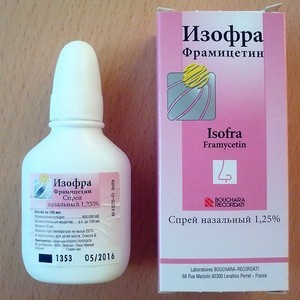 A combination drug with a combination of an aminoglycoside antibiotic and sodium chloride.
A combination drug with a combination of an aminoglycoside antibiotic and sodium chloride.
The medicine is released in the form of a spray in a special bottle. The area of application of the drug is the treatment of sinusitis, sinusitis, pharyngitis, preventive measures after operations.
Side effects after using the medicine occur quite rarely. The average cost is 300–320 rubles.
Nasonex
An effective drug containing corticosteroid components in the form of mometasone furoate. Indications for use: allergic rhinitis, chronic diseases nasal cavity, exacerbation of chronic sinusitis.
The medicine also has a number of contraindications: individual intolerance to the components, the presence of concomitant infections in the body, trauma to the nasal cavity. The average cost is 650–660 rubles.
Pinosol
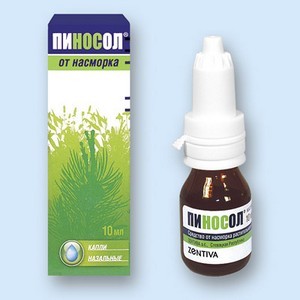 Treatment of sinusitis with medications can be carried out using herbal components of natural origin.
Treatment of sinusitis with medications can be carried out using herbal components of natural origin.
The drug is presented in the form of drops, ointments, creams and sprays in a certain dosage.
The medication is prescribed for inflammatory diseases nasal cavity.
The medicine has a small number of contraindications: allergic rhinitis, individual sensitivity to the main components of the composition, children under 3 years of age. The average cost is 230–250 rubles.
Antihistamines for sinusitis
This category of drugs eliminates allergic manifestations of sinusitis and relieves swelling and inflammation in the nose. It is preferable to use drugs with pronounced sedative effect. Taking medications should be coordinated with your doctor to avoid the development of negative consequences.
Loratadine
A broad-spectrum antihistamine. Medicine release form: tablets and syrup. Indications for use: removal allergic symptoms caused by pathogens various types. The active ingredient Loratadine provides the basic properties of the drug.
Contraindications: pregnancy, breast-feeding, intolerance to components, dysfunction of the liver, kidneys, age category of children under 2 years. The average cost ranges from 160–200 rubles.
Nonsteroidal anti-inflammatory drugs
Medicines are used as complementary therapy to remove acute stage inflammation and stimulation of the release of mucus accumulated in the maxillary sinuses. Such medications are also taken as prescribed by a doctor, as they have some restrictions on their use.
Ambroxol
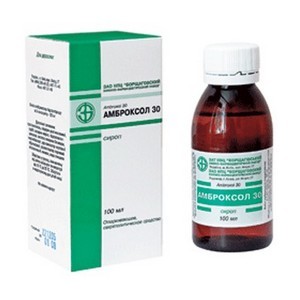 One of inexpensive drugs effective action, having a mucolytic effect.
One of inexpensive drugs effective action, having a mucolytic effect.
The drug is presented in the form of tablets, solution and syrup.
The scope of application of the medicine is acute diseases respiratory organs, requiring expectoration of accumulated mucus, which helps with sinusitis.
Ibuprofen
A non-steroidal anti-inflammatory drug that has an analgesic effect. The active substance Ibuprofen ensures the effectiveness of the medicine. The medication is intended for pain of various etiologies.
Contraindications: pregnancy (third trimester), serious illnesses internal organs, stomach ulcer, intestinal dysfunction, postoperative condition (bypass surgery). WITH average cost 50–100 rubles.
Solutions for rinsing the nasal cavity
Medicines that have anti-inflammatory and antiseptic effects are used as disinfecting drugs. Drugs are also effective for strengthening the immune system and preventing the development of viruses in the nasal cavity.
Furacilin
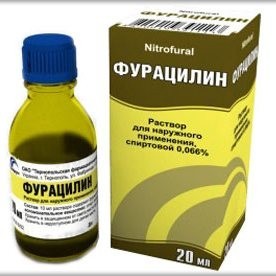 Inexpensive antiseptic drug presented as a solution for rinsing the nasal cavity.
Inexpensive antiseptic drug presented as a solution for rinsing the nasal cavity.
The medicine has a wide range of applications and is effective in the treatment of many infectious diseases.
The drug has virtually no contraindications and is not recommended for individual sensitivity, dermatoses and bleeding.
The average cost is 70–100 rubles.
Interferon
An antiviral drug with immunomodulatory action with a wide range of applications. The main task of the medicine is to eliminate viruses and strengthen protective functions body.
The medication has some contraindications: the presence constant depression and disorder nervous system, epilepsy, individual intolerance to components. The average cost is 200–220 rubles.
Important! To choose the most effective medicine for sinusitis, you should obtain a preliminary consultation with your doctor, who will prescribe the necessary medications!
Conclusion
Absence proper treatment sinusitis can cause serious complications in which there is a need for surgical intervention and a long period rehabilitation.
The key to a quick recovery is the correct treatment and compliance with all the doctor’s instructions!
The first symptoms of sinusitis - inflammation of the maxillary paranasal sinuses, so reminiscent of a common cold, remain unattended for some time.
The patient continues to lead active life, putting it in the nose vasoconstrictor drops, swallowing a lot of headache pills.
Trying to get rid of profuse runny nose by using steam or warming the paranasal sinuses with hot salt, the patient significantly complicates the course of the disease.
Antibiotics in tablets and injections
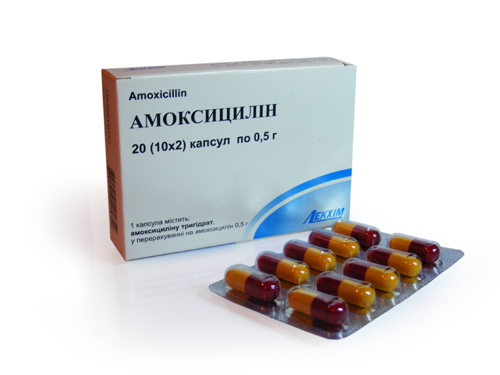 Before starting treatment of sinusitis with medications, a bacterial examination of the sinus discharge is carried out. For adults, augmentin and amoxicillin are primarily prescribed.
Before starting treatment of sinusitis with medications, a bacterial examination of the sinus discharge is carried out. For adults, augmentin and amoxicillin are primarily prescribed.
If drugs for the treatment of sinusitis in tablets are intolerant, they are discontinued and antibiotic injections are prescribed.
The patient is prescribed amosin, amoxiclav, ecoclave, flemoxin solutab. In case of intolerance to the amoxicillin series, macrolides are prescribed - summed, zitrolide, macropen.
Antibiotics of the cephalosporin series - ceftriaxone, ceftibuten, cefuroxime - facilitate the course of chronic sinusitis. New synthetic antibiotics, fluoroquinolones, are used to treat chronic sinusitis in adults.
When becoming accustomed to the listed antibiotics, new drugs levoxacin and moxifloxacin are prescribed.
Anti-inflammatory drugs
Powerful modern remedy treatment of sinusitis and other sinusitis - fenspiride. This drug reduces swelling and reduces mucus secretion. Anti-inflammatory drugs such as ibuprofen and diclofenac are also used.
For chronic sinusitis, phenylbutazone, indomethacin, piroxicam are prescribed, for local treatment Inhaled mometasone is prescribed. This anti-inflammatory glucocorticoid drug is approved for children and adults.
Mometasone is used to treat exacerbation of symptoms of chronic sinusitis. Good anti-inflammatory agent local application— drug Traumeel S.
Antihistamines for sinusitis
Used to treat sinusitis antihistamines 2 generations – desloratadine, ebastine, chloropyramine.
Bronchodilators
This group includes theophylline, essential oils.
These medications enhance the activity of ciliated cells in the epithelial lining of the paranasal sinus, improve sinus drainage and mucus discharge.
Secretolytic drugs
Herbal preparations, essential oils, synthetic drugs, such as bromhexine, ambroxol, I use to speed up the evacuation of mucus. The main effect of these substances is to change the nature of mucus secretion and reduce its viscosity.
Mucus thinners
 Mucolytics used for sinusitis include sinupret, myrtol, and acetylcysteine. Mucolytics are used not only to treat sinusitis, but also for lung diseases.
Mucolytics used for sinusitis include sinupret, myrtol, and acetylcysteine. Mucolytics are used not only to treat sinusitis, but also for lung diseases.
The active substance contained in Myrtol tablets, after administration and absorption into gastrointestinal tract, enters the sinus mucosa through the blood, where it affects the viscosity of the discharge.
Reducing the viscosity of the secretion promotes outflow and eliminates stagnation of secretion in the maxillary cavity. Myrtol is used for both acute and chronic sinusitis.
Sinupret relieves swelling, inflammation, enhances the effect of antibiotics on pathogenic microflora.
We also suggest that you familiarize yourself with traditional methods treatment of sinusitis in our article.
Surgery
TO surgical treatment begin if conservative methods are ineffective.
To remove contents from the maxillary sinus, a puncture is performed; based on the results of the examination of the discharge, further treatment is prescribed.
Fungi may be found in the washing liquid; in this case, antibiotics are canceled and prescribed antifungal treatment. When found anaerobic bacteria treatment of the sinuses with oxygen is prescribed.
Puncture of the maxillary cavity
Many patients have a wary attitude towards puncture of the maxillary sinus. But is it possible to cure chronic sinusitis only with medications, if the contents of the maxillary sinus have tightly sealed the excretory anastomosis, and there is no other way to remove pus from the sinus except a puncture?
The first misconception
The puncture hurts.
The puncture is made under local anesthesia. Lidocaine is used for this. They moisten tampons and insert them deeply into the nasal passage.
The puncture is made with a very sharp needle after freezing. The patient does not feel any pain.
Second misconception
Having pierced once, you will have to do them constantly.
If you don’t start the disease, you can get by with just one puncture, and there are many examples of this. And if you come to the doctor on the very early stage sinusitis, treatment may well be limited to prescribing medications and rinsing the nose.
Arguments in favor of piercing
Punctures are done every day, many people have undergone this procedure and have given up sinusitis forever. How to delete rotten roots teeth with deep caries, in case of severe sinusitis, it is necessary to perform a puncture in order to completely remove the source of the disease and cleanse the sinus of pus.
Puncture is one of the most reliable ways to both diagnose the disease and cure chronic sinusitis forever.
If the disease persists, it may be necessary to administer medications daily into the maxillary sinus. In this case, after the puncture, drainage is installed, which can remain in the cavity for up to 12 days. Through it, medications are administered into the cavity 2-3 times a day.
Surgical treatment
In diagnostic and medicinal purposes perform a micromaxillectomy operation. The intervention makes it possible to examine maxillary cavity from the inside using an endoscope.
To clear the sinuses, a Caldwell-Luc procedure is performed. During the operation, an incision is made in the soft tissue above the teeth and under the upper lip.
In this way, they penetrate the maxillary sinus, clean the mucous membrane, and then suture the wound.
Disability due to chronic sinusitis using surgical treatment is up to 2 weeks.
Forecast
When visiting an otolaryngologist early drug treatment effectively relieves the manifestations of chronic sinusitis. Severe exacerbation of the disease requires surgical treatment.
Sinusitis or sinusitis is an inflammation of the maxillary (maxillary) sinuses, the most common complication acute rhinitis. This infection, i.e. developing when viruses or bacteria enter the body. The treatment will depend on which microbe caused the inflammation. The vast majority of acute sinusitis is viral, occurring against the background of ARVI or influenza.
Uncomplicated viral rhinosinusitis in typical cases lasts from 7 to 10 days, during which time the immune system independently copes with the infection and recovery occurs. Unlike acute viral rhinosinusitis, bacterial sinusitis takes longer and is more severe, and more often leads to complications. The likelihood of bacterial sinusitis increases from the 10th day from the onset of symptoms.
Medicines to reduce symptoms of sinusitis
In mild cases, their use is sufficient (usually for viral sinusitis).
1. Painkillers. Used in the presence of pain syndrome, high temperature. Typically, paracetamol and ibuprofen are used. Prescribed in a short course (for 3-4 days) 1 tablet. 2 times a day.
2. Local vasoconstrictors - nasal drops and sprays. Oxymetazoline (nasivin, nazole) – has the longest duration of action (12 hours). Used to relieve nasal congestion for no more than 3 days. A number of studies have found that they themselves can provoke inflammation, so it is not recommended to exceed the permissible duration of use.
3. Saline solutions - drops and sprays. They improve the outflow of nasal secretions, moisturize the mucous membrane, and reduce congestion. You can safely use it until recovery.
Aqua Maris. Adults – 2-3 doses in each nasal passage 4-8 times a day.
Children under one year old - 2 drops in each nasal passage, children 1-7 years old - 1-2 injections in each nasal passage 1-3 times a day, children 7-16 years old - 2 injections in each nasal passage 4-6 once a day
Treatment of bacterial sinusitis
Antibacterial therapy for sinusitis
Prescribed only for bacterial sinusitis. Antibiotics do not work on viruses. Such drugs occupy a major place in the treatment of bacterial inflammation and shorten the duration of the disease.
Indications for use antibacterial therapy:
– severe course sinusitis ( high fever, poor general health, presence of fluid in the sinuses, etc.)
– accompanying illnesses immune system(immunodeficiencies), cardiovascular, respiratory systems.
– long-term (more than 7 days) persistence of symptoms or worsening of the disease.
Groups of antibiotics for the treatment of sinusitis
1. Semi-synthetic penicillins (aminopenicillins).
Amoxicillin (hiconcil, amosin)
Flemoxin solutab
Tablets 125, 250, 500,1000 mg
2. "Protected" aminopenicillins. They contain special substances that prevent the destructive effects of bacteria on the antibiotic itself. This is additional benefit during treatment, because the likelihood of microorganism resistance and treatment failure is reduced. Such drugs are somewhat more expensive than simple aminopenicillins.
Amoxicillin clavulanate (amoxicillin + clavulanic acid). Tablets 375 mg, 625 mg, 1 g
Issued under trade names: amoxiclav, panclave, flemoclav solyutab, augmentin.
3. “Respiratory” fluoroquinolones.
Levofloxacin (Levolet, Glevo, Tavanic, Eleflox, Floracid), tab. 500 mg
Moxifloxacin (Avelox), tab. 400mg
4. Macrolides.
Clarithromycin (Clabax OD, Clarbact, Klacid, Fromilid), tab. 250, 500 mg
Azithromycin (azitrox, zitrolide, sumamed, sumatrolide solutab, hemomycin), tab. 250, 500 mg
Antibacterial drugs should never be taken independently without a doctor’s prescription. Even with the use recommended by a doctor, it is possible to develop side effects: nausea, diarrhea, fungal infection, allergic rash and etc.
The choice of a specific antibacterial drug for sinusitis is based on the sensitivity to it of the most common pathogens of acute sinusitis (pneumococcus, Haemophilus influenzae, moraxella), the severity of the condition, the presence or absence of allergic reactions to a particular antibiotic in the past, the frequency of side effects, and existing contraindications. The first-line drug is amoxicillin/amoxicillin clavulanate, and only in case of intolerance are antibiotics of other groups (alternative drugs) prescribed.
Topical (local) glucocorticoids
Can be used in the treatment of both viral and bacterial sinusitis, alone or in combination with tableted antibiotics. The pronounced anti-edematous and anti-inflammatory effect is especially important in patients with concomitant allergic rhinitis. Does not provide systemic impact(to other organs).
Nasonex (mometasone furoate) nasal spray. 1 dose – 50 mcg
Adults: 2 doses in each nasal passage, 2 times a day. Due to possible risk development of side effects (nosebleeds, development of secondary infection, pharyngitis, candidiasis, etc.) should be used only as prescribed by a doctor.
Vasoconstrictors for oral administration
Various dosage forms containing ephedrine, pseudoephedrine, phenylephrine, phenylpropanolamine. Reduce swelling of the nasal turbinates, promote ventilation of the nasal sinuses. Prescribed in a short course (from 3 to 5 days) for concomitant violation functions eustachian tube. Should not be used without a doctor's prescription, especially by patients with diseases of cardio-vascular system, arterial hypertension, prostate adenoma due to a systemic vasoconstrictor effect.
Mucolytics (thinning viscous nasal secretions)
Rinofluimucil. Adults – 2 doses with an interval of 5 minutes in each nasal passage 3-4 times a day.
Children – 1 dose 3-4 times a day.
Course – 5-7 days.
Combined local products
Polydex with phenylephrine.
Adults – 3-5 injections into each nasal passage per day, children from 2.5 to 15 years – 3 injections into each nasal passage.
Duration of treatment is 5-7 days.
Contraindicated in case of angle-closure glaucoma, allergic reactions on the components of the drug, viral infections, renal failure and kidney diseases with the presence of protein in the urine, children under 2.5 years old, during pregnancy and breastfeeding.
Used after consultation with a doctor.
Herbal preparations
Over-the-counter products, if not available individual intolerance, can be used in addition to the main treatment.
Sinupret (dragés, drops for oral administration). Anti-inflammatory drug based medicinal plants.
For adults – 50 drops or 2 tablets 3 times a day.
Children from 2 to 6 years old – 15 drops 3 times a day, school age– 25 drops or 1 tablet 3 times a day. Course – 7-10 days.
Treatment of sinusitis in children
In children, along with the maxillary sinuses, other sinuses are often involved in the inflammatory process (polysinusitis). Treatment is carried out with the same groups of drugs as in adults, adjusted for the age or weight of the child (children's forms of drugs). Nurofen for children, Panadol for children are prescribed in case of headache.
Treatment of sinusitis in pregnant women
Sinusitis in pregnant women must be treated to prevent the risk of intrauterine infection of the fetus. In the case of viral sinusitis, usually symptomatic therapy turns out to be enough. Sinupret (dragees) are safe saline solutions. From the group of antipyretic and painkillers, you can take paracetamol. Vasoconstrictor drugs local action used in pregnant women only when absolutely necessary and as prescribed by a doctor. If the doctor thinks necessary appointment antibiotic, then preference is given to amoxicillin due to its lack harmful influence for the fruit.
Illiterate and untimely treatment of sinusitis leads to the development of complications, in particular chronic sinusitis when symptoms persist for more than 3 months. IN severe cases the inflammatory process can progress to nearby organs and tissues - periosteum, periorbital region, brain. In children, due to their characteristics anatomical structure, complications are more common. As a rule, if there is a suspicion of acute sinusitis, prescribed by a doctor X-ray examination paranasal sinuses nose, depending on the results of which he prescribes treatment and where it is carried out - at home or in a hospital.
Doctor therapist S.E.V
Not always colds pass without a trace, sometimes after them an inflammatory process develops in the maxillary paranasal sinuses - sinusitis. If the disease is not treated, it will develop into chronic form. How to choose the best remedy for sinusitis? Read about this in the article.
Antibiotics
Such medications are quite effective and today are often prescribed by otolaryngologists. They suppress infection and stop the spread of pathogens. But to say that antibacterial drugs- this is the best remedy for sinusitis, it would be wrong. In cases where the disease is caused by viruses, they will not bring any benefit and may even cause harm. You should consult your doctor before using antibiotics. The specialist will determine the severity of the inflammatory process and its nature, based on which he will tell you whether you need to take such medications or not. When choosing a medicine, it is also necessary to take into account the sensitivity of the bacteria that caused the disease to it.
3. “Sparfloxacin”, “Levofloxacin” - fluoroquinolones used when other antibacterial agents turn out to be ineffective.
4. "Bioparox". Refers to topical (local) antibiotics. This is the best remedy for sinusitis when the inflammation has mild degree. At a severe stage of the disease, such a medicine is prescribed as an additional one.
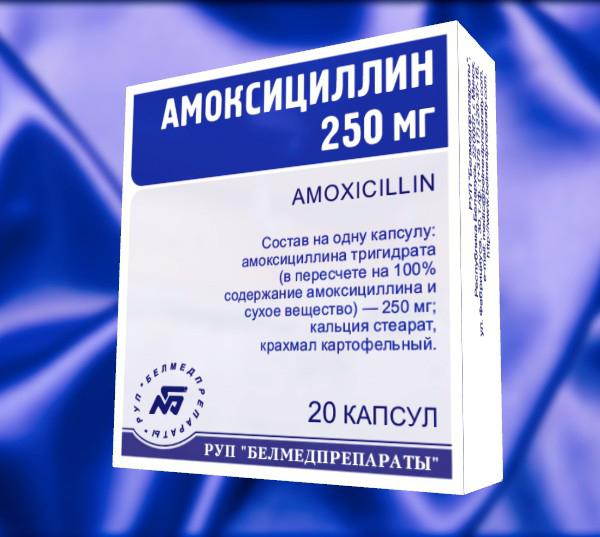
Vasoconstrictors
With a disease such as sinusitis, the outflow of mucus from the maxillary paranasal sinuses is disrupted, resulting in the formation of an environment favorable for the proliferation of pathogens. To restore the self-cleaning process of the sinuses, decongestants are used - vasoconstrictors, produced in the form of sprays and drops. They affect the tone of the capillaries in the nose and promote contraction of cavernous tissue in the mucous membrane. As a result, the nasal passages expand and breathing improves.
It is not possible to single out one most effective remedy for sinusitis from vasoconstrictor medications - the choice in favor of one or another medicine should depend on clinical picture. All drugs vary in duration and severity of action. The most common drugs are Adrianol, Vibrocil, Otrivin, Galazolin, Tizin Xylo, Dlyanos, Nazol and Sanorin. Decongestants - good means for the treatment of sinusitis, but they cannot be used for more than ten days (for some drugs the duration of administration should be even shorter). The fact is that in the case of long-term use, pronounced swelling occurs in the nasal cavity, which entails a change in the structure of the mucous membrane.
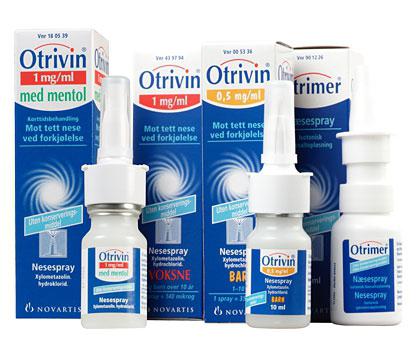
Dosage form
The form of release of the medicine is very important. Ordinary drops are quite difficult to dose, often when using them most of medicine flows from the nasal cavity into the throat. Consequently healing effect is not always achieved, but there may be a risk of overdose. Injecting drops from a container that must be squeezed with your fingers is fraught with the same problems. Therefore, it is recommended to give preference to sprays in solid bottles.
Mucolytic drugs
Such medications are used to reduce the viscosity of mucus. The most famous mucolytic remedy for sinusitis is Acetylcysteine. In addition to the main pharmacological properties, the drug also exhibits antioxidant activity, due to which its interaction with oxidative toxins is achieved. The most common mucolytic remedy for sinusitis plant origin- “Sinupret.” By increasing the activity of epithelial cilia, it allows you to accelerate the release of pathological secretions. We'll tell you more about this drug a little later.
Corticosteroids
To treat inflammation of the sinuses, such medications are used in the form of nasal sprays. They produce antiallergic and anti-inflammatory effects, and also reduce the production of secretions by the glands of the nasal mucosa and eliminate tissue swelling. The most effective corticosteroid remedy for sinusitis is Nasonex. Active component This medication is mometasone. If the inflammation is mild, Nasonex can be used as monotherapy (without prescribing other medications). In other cases it is used as aid against the background of antibacterial therapy.
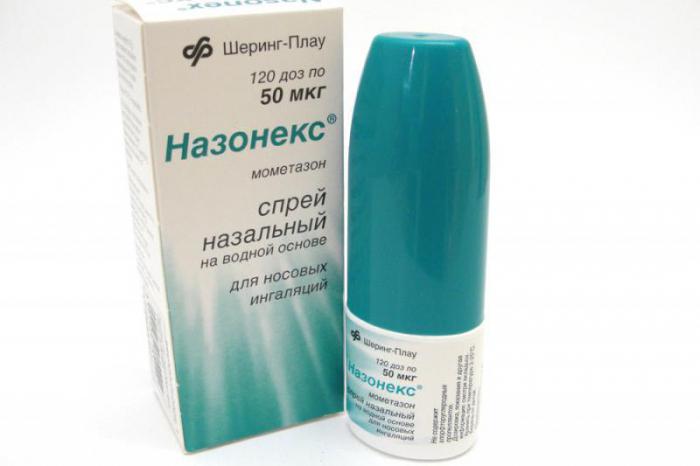
Immunomodulators
These are substances that regulate the functioning of the immune system. In case of inflammation, medications are prescribed bacterial origin, stimulating humoral and cellular immunity. The best immunomodulatory remedy for sinusitis is “Broncho-munal”. The drug Ribomunil is also considered effective. They are used as part of complex treatment, as well as to prevent relapse of the disease.
Homeopathic medicines
Therapy of the inflammatory process in the sinuses with homeopathy in modern society is becoming more and more popular. Herbal medicines are developed on the basis of extracts of various plants and, as a rule, do not contain any chemicals, which means they are absolutely safe for humans, have practically no contraindications for use and do not cause side effects.
Homeopathic remedy for sinusitis "Belladonna" (in the third, third decimal, sixth dilution) is prescribed in case of acute inflammation when throbbing pain and fever, dilated pupils and redness of the face are present. After taking the drug, the patient, despite profuse sweating, should wrap yourself warmly. In particularly serious cases, the drug is used in increased dosages.
If sinusitis has progressed to chronic stage, depending on the patient’s constitution, they use drugs such as “Silicea”, “Mercurius Solutab”, “Kalium Yodatum”, “Kalium Bichromicum”. If there is pressure and pain in the bridge of the nose, use a medicine prepared on the basis of red mercury sulfide, or the so-called cinnabar (in the sixth, twelfth, thirtieth dilution). If the nasal discharge is stringy and contains blood, and there is a bitter taste in the mouth, it is prescribed homeopathic medicine"Hydrastis" (in the third, third decimal, sixth dilution). 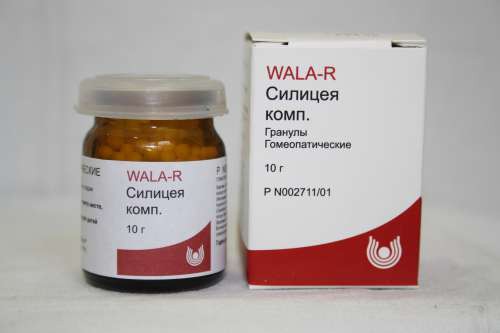
Gepar Sulfur is considered an effective remedy for sinusitis ( liver sulfur). The drug will be useful when pain appears when touching the sinuses and there are copious discharge pus. It is used in the sixth, twelfth, thirtieth dilution. In cases where neuralgic syndrome develops after inflammation, Mezereum will help ( wolfberry). It should be taken if the pain increases in cold conditions and decreases in warm conditions. It is prescribed in the third, third decimal, sixth dilution.
Remedy for sinusitis "Sinuforte"
This drug is also classified as homeopathic. Modern pharmacologists have discovered that the cyclamen plant can be used to treat inflammation of the sinuses. The extract of its root contains Sinuforte, a remedy for sinusitis, as an active ingredient. Cyclamen has a thinning effect on mucosal receptors, enhances the secretion of pathological secretions and facilitates its outflow from the maxillary sinuses.
The drug, according to the conclusion of leading experts in the field of otolaryngology, is optimally used on initial stages development of sinusitis, as well as long-term colds. In such cases, Sinuforte will effectively and quickly eliminate painful manifestations and prevent complications. Symptoms such as facial and headache, fever, nasal congestion, as a rule, completely disappear on the third day of treatment. The drug is produced in the form of a lyophilized powder intended for the preparation of a solution that should be administered intranasally. The product is used for six to eight days once a day (the drug is sprayed once into each nasal passage). 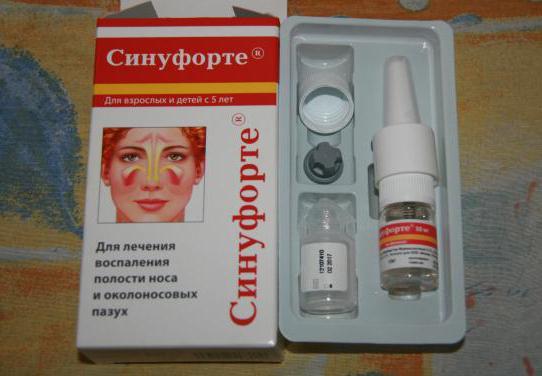
The medicine is usually well tolerated and does not cause side effects, but it is still recommended to consult a doctor before using it. If the anastomosis is completely blocked, increased mucus secretion may cause dangerous conditions, and also cause severe pain in inflamed sinuses. During pregnancy and the lactation period, it is prohibited to take Sinuforte, a remedy for sinusitis. The price of the drug varies between 1309-1741 rubles per bottle (fifty milliliters).
Sinupret drops
We have already mentioned this medication earlier. The drug is also homeopathic and contains extracts of black elderberry flowers, primrose, verbena, and sorrel. Taken together, these natural ingredients produce strong antimicrobial and antiviral effects that stimulate immune processes, relieve inflammation. Sinupret drops are effective not only in case of sinusitis, but also in other pathologies of the nasopharynx. The advantage of the drug over antibiotics is that it has no effect on beneficial microflora and exposure exclusively to pathogenic organisms. The dosage of the medicine is selected individually, based on the patient’s age.
Irrigation therapy
An integral part of the process of treating inflammation of the sinuses is their rinsing. For sinusitis, the drugs Aqualor, Marimer, Dolphin or Aqua Maris are used for these purposes. They are made from sea water (pre-sterilized) by changing the salt content in it to the required concentration. Such agents help reduce the viscosity of mucus and increase the activity of the cilia of the ciliated epithelium. They also somewhat narrow the vessels of the nasal mucosa.
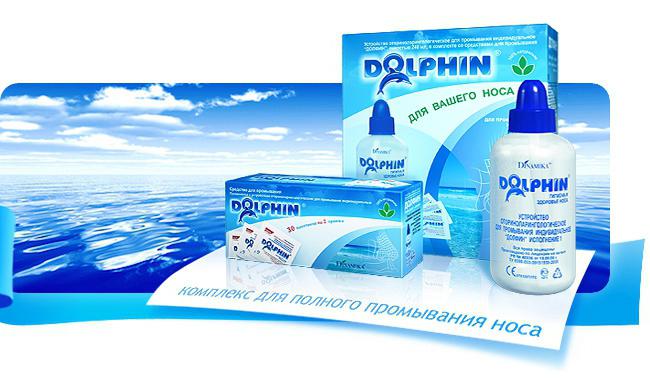
Finally
So, to eliminate the inflammatory process in the maxillary sinuses, there are many effective medications. After identifying the clinical picture, the otolaryngologist will be able to choose the best remedy for sinusitis for you. You should not self-medicate, because you can progress the disease to such a state that you will need surgical intervention. Only a doctor can determine which drug will be most effective specifically for you. Be healthy!
Sinusitis is an inflammation of the paranasal sinuses, which is accompanied by unpleasant symptoms in the form of impaired nasal breathing, nasal congestion, headaches and facial pain, a feeling of tension in the forehead and temples. But it’s not the symptoms that make the disease scary. The danger is posed by complications that can develop if it is treated incorrectly.
If you suspect sinusitis, you should not delay visiting your doctor. He will give directions to necessary tests, will establish the cause and type of the disease, and also prescribe a set of drugs for treatment.
How to determine the most effective remedy?
Effective treatment of sinusitis is impossible without identifying its cause. After all, it depends on her which drug will take a central place in the treatment of the disease. Yes, if you served bacterial infection, then the most effective medicine for it is an antibiotic. An antihistamine is the best way to treat allergic sinusitis.
However, there are a number of remedies that are used for any type of disease. These medications are designed to eliminate the symptoms of the disease:
- pain;
- nasal congestion;
- violation of nasal breathing;
- formation of scar tissue.
For these purposes in complex treatment sinusitis include painkillers, non-steroidal anti-inflammatory drugs, vasoconstrictors, mucolytics, corticosteroids.
The best drugs from the group of antibiotics
To determine the most effective remedy for sinusitis from this group, you will need to conduct bacteriological analysis to identify the susceptibility of pathogens. A drug that has the properties to kill pathological bacteria that cause diseases will be optimal.
- First of all, penicillin antibiotics are prescribed. Among them, Augmentin should be noted. He is perhaps the most frequently appointed spokesman for the group. The drug contains amoxicillin enhanced with clavulanic acid.
- Cephalosporins are on a par with penicillins. One of the most effective drugs group is Cefixime.
- If pathogenic flora is not sensitive to penicillins and cephalosporins, then macrolides are prescribed. These antibiotics have more wide range actions. The most famous representative of macrolides is Azithromycin. Except high efficiency the drug has a convenient dosage regimen - 3 tablets are usually enough for a course of treatment, taken one per day.
- When macrolides are not able to cope with sinusitis, drugs from the group of fluoroquinolones are prescribed. Among them, Lomeflox and Levofloxacin are the most effective.
- Sprays containing antibiotics (Isofra and Polydexa) also effective medicines from sinusitis. Isofra contains framycetrin, which exhibits bactericidal activity against most microbes that cause diseases of the upper respiratory tract.
Polydexa is a complex drug containing simultaneously 2 antibiotics, a vasoconstrictor and a hormonal component. This ensures its high antibacterial activity, as well as quick fix swelling and restoration of nasal breathing.
The best mucolytics in the treatment of sinusitis
The task of mucolytics is to thin and facilitate the passage of mucus from the sinuses.
- Works great with her herbal preparation Sinupret. In addition to the mucolytic effect, it also has decongestant, antiviral, anti-inflammatory and immunostimulating effects.
- A good remedy for sinusitis is another herbal preparation, only for topical use - Sinuforte. Due to its ability to thin mucus and promote its removal due to local irritation of mucosal receptors, it is also classified as a mucolytic agent.
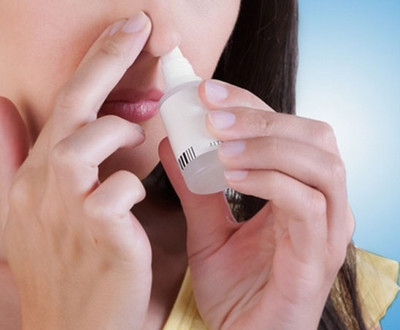
Typically, treatment of sinusitis at home begins with the use of vasoconstrictor drops in the nose, believing that another runny nose had begun. Using these medicines allows you to quickly narrow blood vessels, normalize breathing through the nose and eliminate nasal congestion. When choosing drops, it is better to give preference to long-acting drugs:
- Nazivin,
- Rinazolin,
- Nazol.
It is impossible not to note the complex drug Vibrocil, which contains both vasoconstrictor and anti-allergenic active ingredients.
How to relieve pain?
To eliminate pain from sinusitis, the most helpful is Nurofen or our analogue Ibuprofen. These drugs not only eliminate pain, but also help reduce the inflammatory process, as well as normalize elevated temperature bodies.
Corticosteroids
These drugs are used for sinusitis that is viral, allergic or bacterial in nature in the absence of treatment results with other means. Preference is given to medications for topical use. They have powerful anti-inflammatory and decongestant effects, with virtually no effect. systemic action on the body. The most used representative of the group is Nasonex nasal spray.
Don't forget about rinsing and moisturizing
Treatment of sinusitis with medication mandatory includes drops and sprays for cleansing and moisturizing the mucous membrane. They have no contraindications and can be used at any age. It is advisable to use such drugs several times a day, especially before using other local funds for the nose. This application will increase the effectiveness of the latter. The most popular representatives of sea water-based products:
- Humer,
- Aqua Maris,
- Marimer.
There is no ideal medicinal product. The best medicine from sinusitis will be different in each individual case. After all, it should not only effectively treat the disease, but also be well tolerated by the patient without causing side effects. Therefore, the selection of drugs for the treatment of this difficult disease is carried out on an individual basis.
